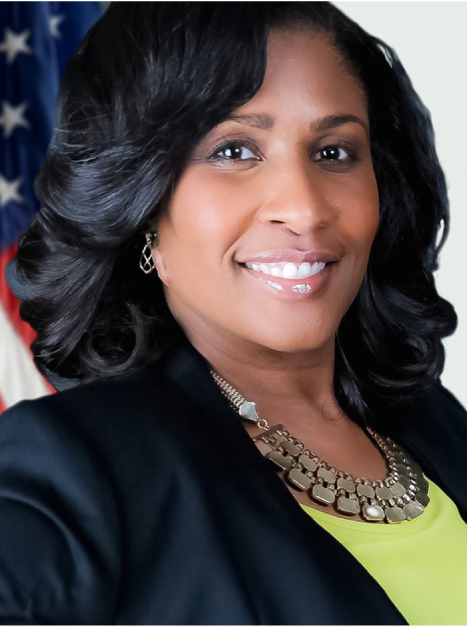Making a Way Out of No Way: Two African American Women Reflect on Their Leadership at OIT

"As I look back over my life, I instantly hear that church hymn that goes, ‘He made a way out of no way,’ and I can truly say I have a living testimony. I think we all do.” - Shawnte Singletary
For Antoinette “AJ” Johnson and Shawnte Singletary, their family upbringings are a natural starting point for telling the story of how they began on a path toward leadership at OIT.
“I was the one in charge,” recalls Singletary, whose leadership qualities began to show early in life thanks to competing with an older twin brother. She also points to her mother as a role model and says that many of her traits come from her mother’s strength as the family matriarch.
“My mother has always been a big advocate of family,” Singletary says. “She took charge and made sure that everybody was taken care of.”

These same characteristics are echoed in Johnson’s upbringing. Johnson, a first generation American, points to her mother’s energy as very influential.
“She set the stage…she was very strong and independent which definitely rubbed off on me,” says Johnson, who was greatly impressed by how her mother deftly navigated the struggles of emigrating to New York City from Jamaica.
Not only do Johnson and Singletary lead teams in OIT, they also take charge at home and mention motherhood and caregiving as experiences that gave them the qualities they need to be proficient leaders.
Always the first to raise her hand, Singletary is typically the family member who volunteers to organize events like family cookouts. She says that taking the time to follow through with a commitment is just as important as volunteering in the first place. “A lot of people will say that they’ll help you, but they only help you halfway,” Singletary adds.
Johnson says household management and kids’ extracurricular activity schedules are another way in which her leadership qualities shine. “I really began to think of myself as a leader when I was having my first child,” says Johnson.
The oral history Explorations in Black Leadership asked several black leaders which of the following definitions of leadership is closest to their own.
a) great people cause great events;
b) movements make leaders;
c) the confluence of unpredictable events creates leaders appropriate for the times.
While Johnson and Singletary didn't make it into the history, which was published as a book, they did share their thoughts on that question with PlanetOIT. Both agree that their leadership path relates closely with the third definition. Singletary summarizes her start in IT as being in the right place at the right time, combined with a healthy dose of perseverance.

Although she had little experience in IT, Singletary used her natural technical skills to figure out how to fix printers and computers. Unfortunately, not everyone believed in her capabilities.
“My dad is a mechanic by trade, and I feel like I have some of that mechanical know-how from him,” Singletary recalls. “As a young African American woman in IT, I got some looks like, ‘Hey, do you know what you’re doing?’”
Johnson relied on her customer experience background and love for inclusivity to find a path to leadership in IT. “There is a much greater emphasis on customer service, end-user experience, and universal design at OIT than there used to be,” says Johnson. “That experience is what I bring. It is critical to understand the user and clearly align whatever you are developing to their needs.”
Johnson has also used her perspective as a minority in leadership to advocate for others.
“The intersectionality that I bring to the table as an African American female with a non-physical disability is unique,” Johnson says.
When it comes to advancing issues of race and equity, Singletary is thrilled to work for an agency that is open to leaders providing a platform for discussions about race.
“I hope we continue to have the Diversity, Equity and Inclusion (DEI) group,” Singletary says. “People need to hear what others are experiencing in this world because that's how we learn.”
Johnson agrees that raising awareness is the first step to creating more equity. “Because race is important to talk about, we shy away from it,” Johnson says. During the aftermath of the George Floyd tragedy, she suggested holding listening sessions to allow a safe space for people to talk about difficult subjects and ultimately bring them together.
Looking ahead, both women recognize that leadership styles in IT will likely evolve alongside quickly advancing technology.
Johnson believes it is important for leaders to have a style focused not only on the end result of the product, but the customer experience and the way in which a team arrives at a solution.
Singletary is hopeful that the next generation of leaders will welcome more diversity, different ideas, and ideologies. To her, the best leaders will have problem-solving skills, including the ability to approach a challenge from several directions.
“I’m looking forward to anybody who has a fresh perspective and can continue to build on the agency’s mission to provide healthcare to everyone in the country,” she says.

